The BurundiNational Defence Force is the state military organisation responsible for the defence of Burundi.

Burundi originated in the 16th century as a small kingdom in the African Great Lakes region. After European contact, it was united with the Kingdom of Rwanda, becoming the colony of Ruanda-Urundi - first colonised by Germany and then by Belgium. The colony gained independence in 1962, and split once again into Rwanda and Burundi. It is one of the few countries in Africa to be a direct territorial continuation of a pre-colonial era African state.
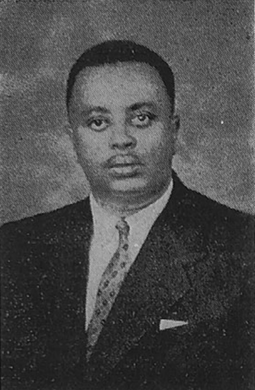
Prince Louis Rwagasore was a Burundian prince and politician, who was the second prime minister of Burundi for two weeks, from 28 September 1961 until his assassination on 13 October.
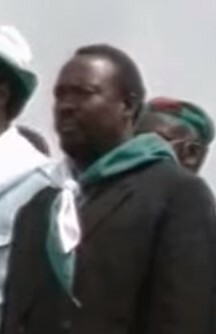
Cyprien Ntaryamira was a Burundian politician who served as President of Burundi from 5 February 1994 until his death two months later. A Hutu born in Burundi, Ntaryamira studied there before fleeing to Rwanda to avoid ethnic violence and complete his education. Active in a Burundian student movement, he cofounded the socialist Burundi Workers' Party and earned an agricultural degree. In 1983, he returned to Burundi and worked agricultural jobs, though he was briefly detained as a political prisoner. In 1986 he cofounded the Front for Democracy in Burundi (FRODEBU), and in 1993 FRODEBU won Burundi's general elections. He subsequently became the Minister of Agriculture and Animal Husbandry on 10 July, but in October Tutsi soldiers killed the president and other top officials in an attempted coup.
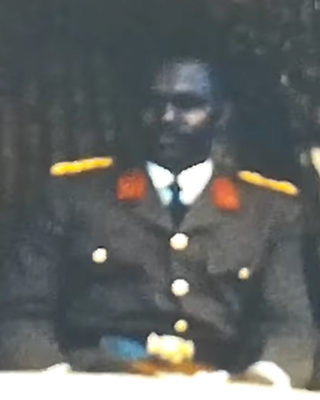
Michel Micombero was a Burundian military officer and politician who ruled the country as de facto military dictator for the decade between 1966 and 1976. He was the last Prime Minister of the Kingdom of Burundi from July to November 1966, and the first President of the country from November 1966 until his overthrow in 1976.

Sylvestre Ntibantunganya is a Burundian politician. He was President of the National Assembly of Burundi from 23 December 1993 to 30 September 1994, and President of Burundi from 6 April 1994 to 25 July 1996.

Jean-Baptiste Bagaza was a Burundian army officer and politician who ruled Burundi as president and de facto military dictator from November 1976 to September 1987.

The Union for National Progress is a nationalist political party in Burundi. Initially it emerged as a nationalist united front in opposition to Belgian colonial rule but subsequently became an integral part of the one-party state established by Michel Micombero after 1966. Dominated by members of the Tutsi ethnic group and increasingly intolerant to their Hutu counterparts, UPRONA remained the dominant force in Burundian politics until the latter stages of the Burundian Civil War in 2003. It is currently a minor opposition party.
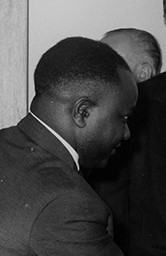
Pierre Ngendandumwe was a Burundian politician. He was a member of the Union for National Progress and was an ethnic Hutu. On 18 June 1963, about a year after Burundi gained independence and amidst efforts to bring about political cooperation between Hutus and the dominant minority Tutsis, Ngendandumwe became Burundi's first Hutu prime minister. He served as prime minister until 6 April 1964 and then became prime minister again on 7 January 1965, serving until his death. Eight days after beginning his second term, he was assassinated by a Rwandan Tutsi refugee.
François Ngeze is a Burundian retired politician. He served as the acting head of state of Burundi from 21 October 1993 to 27 October 1993. He was chosen by the military Committee of Public Salvation, a group of army officers that staged the 1993 Burundian coup d'état attempt overthrew the democratically elected government of president Melchior Ndadaye.

The Senate is the upper chamber of Parliament in Burundi. It consists of between 39 and 56 members who serve 5-year terms. The current Senate was elected on 20 July 2020 and consists of 39 members.
André Muhirwa was a Burundian politician who served as prime minister of Burundi from 1961 to 1963. He became prime minister following the assassination of his predecessor, Louis Rwagasore. A member of the Union for National Progress (UPRONA), he previously served as Minister of the Interior from September to October 1961.

A bloodless military coup took place in Burundi on 3 September 1987. Tutsi president Jean-Baptiste Bagaza was deposed whilst traveling abroad and succeeded by Tutsi Major Pierre Buyoya.

Parliamentary elections were held in Burundi on 22 October 1982, the first since 1965. Following a constitutional referendum the year before, the country had become a one-party state with the Union for National Progress (UPRONA) as the sole legal party. The party nominated 104 candidates to contest the 52 seats in the enlarged National Assembly. Following the election, in which turnout was reported to be 95%, President Jean-Baptiste Bagaza appointed a further 13 members.

Parliamentary elections were held in Burundi on 29 June 2015. The vote had been initially set for 5 June 2015, alongside local elections, but it was delayed due to unrest. Indirect elections to the Senate occurred on 24 July.

The 1976 Burundian coup d'état was a bloodless military coup that took place in Burundi on 1 November 1976. An Army faction, led by Deputy Chief of Staff Jean-Baptiste Bagaza, ousted President Michel Micombero. Bagaza formed the 30-member Supreme Revolutionary Council to take control, suspended the country's constitution and was inaugurated as president on 10 November 1976.

Paul Mirerekano was a Burundian politician. Ethnically Hutu, he worked as an agronomist for the Belgian colonial administration in Ruanda-Urundi before starting a successful market garden in Bugarama. Politically, he was a nationalist, monarchist, and advocate for Hutu civil rights. He was a leading member of Louis Rwagasore's political party, the Union for National Progress (UPRONA), and in 1961 served as the organisation's interim president. Rwagasore's assassination in 1961 fueled a rivalry between Mirerekano and Prime Minister André Muhirwa, as both men claimed to be the heirs to Rwagasore's legacy and sought to take control of UPRONA. The controversy led to the coalescing of two factions in the party, with Mirerekano leading what became known as the Hutu-dominated "Monrovia group". His criticism of Muhirwa and his successor led him to be arrested on several occasions, but in 1965 he was elected to a seat in the National Assembly representing the Bujumbura constituency. The body subsequently elected Mirerekano its First Vice-President on 20 July. In October Hutu soldiers launched a coup attempt which failed, but led to the outbreak of ethnic violence. The government believed Mirerekano helped plan the coup attempt and executed him. His reputation remains a controversial subject in Burundi.
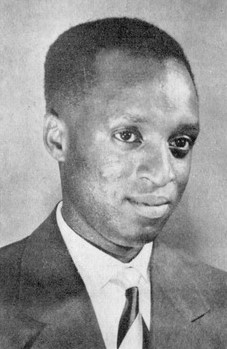
Joseph Biroli-Baranyanka or Joseph Biroli was a Burundian politician and was the first Burundian to receive a university education. Born in 1929 to a prominent chief, he was a Ganwa of the Batare clan. He performed well as a student and earned a diploma from the Institut universitaire des Territoires d'Outre-Mer in 1953. After continuing his education at several other universities he took up work for the European Economic Community. In 1960 his brother Jean-Baptiste Ntidendereza co-founded the Christian Democratic Party, and Biroli became the party's president. His main political rival was Prince Louis Rwagasore, a Ganwa of the Bezi clan who led the Union for National Progress. Biroli was friendly to the Belgian colonial administration in Ruanda-Urundi, while UPRONA demanded immediate independence.
Jean-Baptiste Ntidendereza was a Burundian politician. A co-founder of the Christian Democratic Party, he served as Minister of Interior of Burundi in 1961. He was later convicted of conspiring to kill Louis Rwagasore, a political opponent, and publicly executed.
Révérien Ndikuriyo is a Burundian politician, currently serving as secretary-general of the National Council for the Defense of Democracy – Forces for the Defense of Democracy (CNDD–FDD), a position he has held since 2021. From 2015 to 2020, he served as president of the Senate. He has also served as president of the Football Federation of Burundi since 2013.













